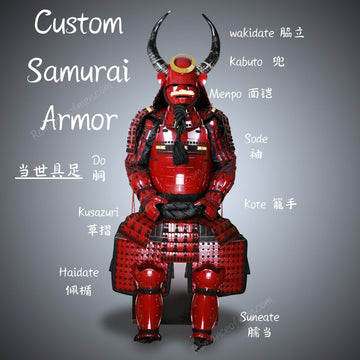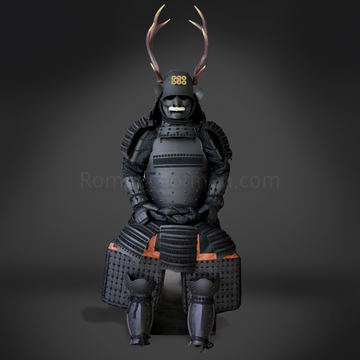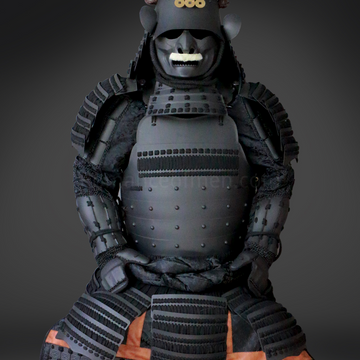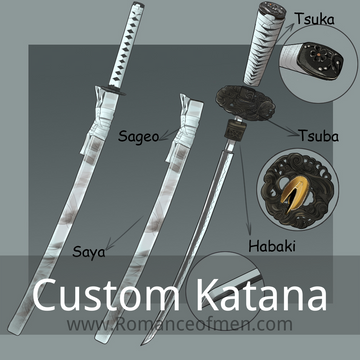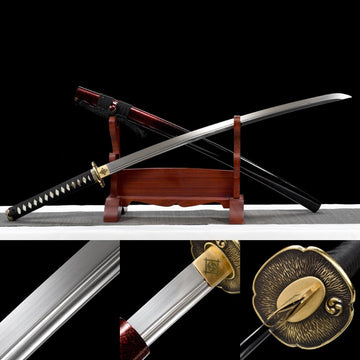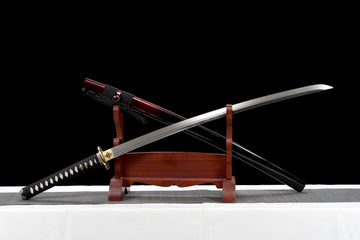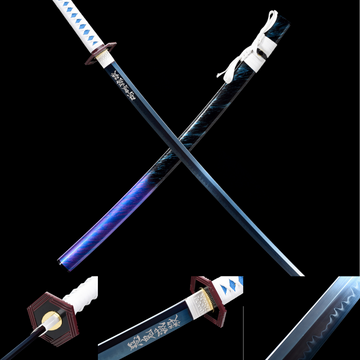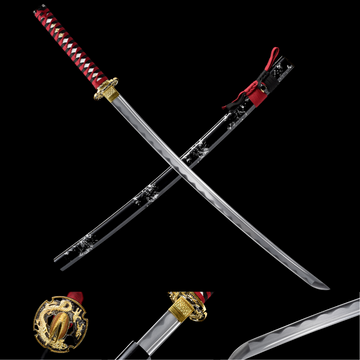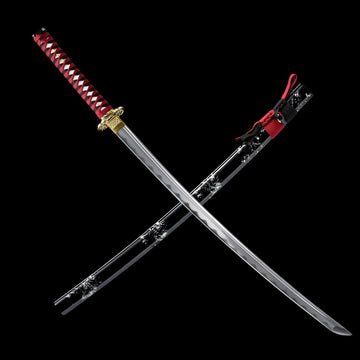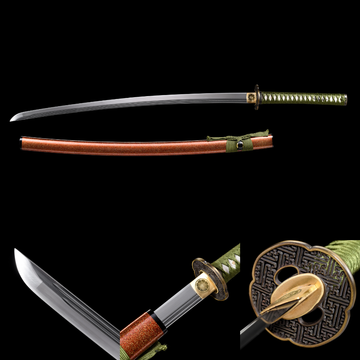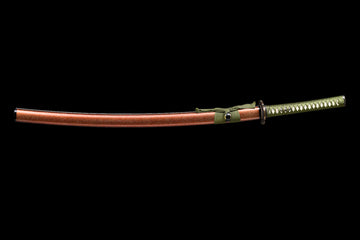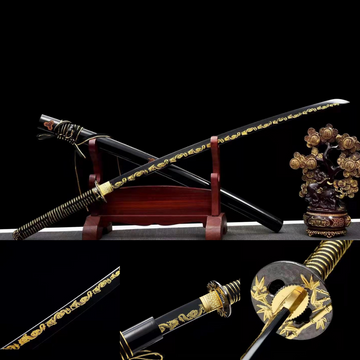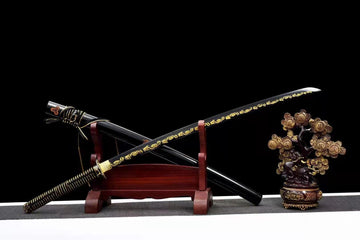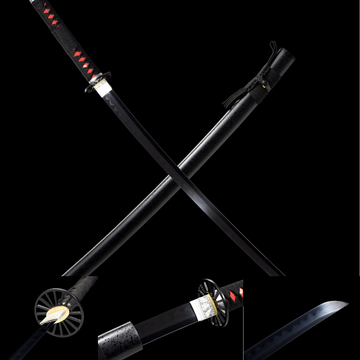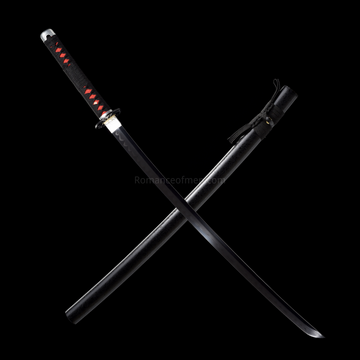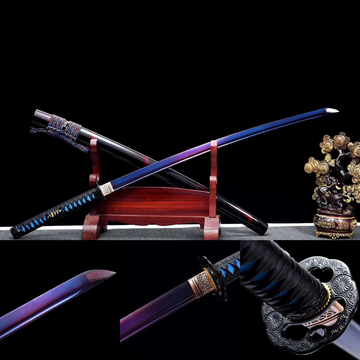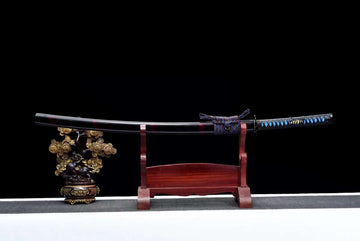Are Katanas Legal? A Comprehensive Guide Across Borders
Welcome to our comprehensive guide on the legality of katana ownership across borders. The katana, a beautifully crafted sword with a rich history dating back to feudal Japan, has captivated the hearts of many around the world. However, the question often arises - are katanas legal to own?
In this article, we will delve into the legalities surrounding the ownership of these iconic swords, providing a detailed, country-by-country analysis. From the liberal laws of Texas to the more stringent regulations in the UK and the European Union, we aim to provide a clear and concise overview of katana laws worldwide.
Please note, while we strive to provide accurate and up-to-date information, this article should not be considered legal advice. Laws are subject to change and can vary based on specific circumstances and locations. Always consult with a legal professional or local law enforcement agency to understand the laws applicable to your area.
Let’s embark on this global journey, exploring the fascinating world of katana legality:
Table of Content
- Are katanas legal in New York
- Are katanas legal in California
- Are katana legal in Florida
- Are katanas legal in Illinois
- Are katanas legal in New Jersey
- Are katanas legal in Pennsylvania
- Are katanas legal in Texas
- Are Katanas legal in UK
- Are katanas legal in Canada
- Are katanas legal in Australia
United States:
Are katanas legal in New York
Within the jurisdiction of New York State, certain kinds of concealable swords, including cane swords or Zatoichi style Katana, are prohibited to purchase, possess, or transport. On the other hand, Katanas that are not concealable are typically legal to own. It’s crucial to bear in mind that swords must not be displayed or openly carried in public spaces and should be kept in a secure sword bag or case. For a thorough understanding of the specific laws applicable to your locality, it’s recommended to seek advice from a legal expert or your local law enforcement agency.
Are katanas legal in California
In California, you can legally carry a sword in public, provided it’s not concealed or brandished. If the sword is sheathed and hung from your waist, it’s legal to carry. However, brandishing a sword without a sheath in a threatening manner is illegal and can lead to a jail sentence of up to 30 days.
Concealed swords, such as those hidden in canes or bags, are illegal due to their classification as concealed blades. This also applies to swords undetectable by metal detectors, like ceramic swords. Concealing a dirk or dagger can lead to a misdemeanor charge, punishable by up to a year in jail and a $1,000 fine, or a felony charge, with a potential jail sentence of 16 months to three years and a fine of up to $10,000.
While state law allows open carry of swords, individual cities may have stricter laws. For instance, in Oakland, it’s illegal to openly carry or control any knife with a blade longer than three inches. Exceptions exist for lawful occupations or recreational activities.
Carrying a sword is prohibited on both public and private school grounds, as well as in state or local government buildings. Violations can be charged as either a misdemeanor or a felony, with potential jail sentences of up to one year or three years, respectively. Federal buildings also prohibit swords, with violations punishable by up to a year in jail.
Are katana legal in Florida
In Florida, the law doesn’t specifically address the open carry of knives, which means carrying any knife openly, regardless of length, doesn’t violate Florida law. However, Florida does regulate concealed weapons, which include any dirk, knife, or other deadly weapon except a firearm or a common pocketknife, plastic knife, or blunt-bladed table knife.
According to the Porter vs. State case in 2001, a pocket knife is considered a “common pocket knife” only if the blade is less than 4 inches in length and the knife is in the closed position. If a pocket knife is over 4 inches and in the open position, it is considered a weapon and not a “common pocket knife.”
In the case of F.R. vs State in 2012, a 3-inch pocket knife with serrations, a notch grip, hilt guard, and locking mechanism was not considered a “common pocket knife.” If the knife didn’t have these features, it might have been considered a “common pocket knife.”
Both these cases were about weapons carried in a concealed manner, not openly. Therefore, based on this information, it can be inferred that katanas, if carried openly, are legal in Florida. However, if concealed, they may be subject to regulations.
Are katanas legal in Illinois
In Illinois, the legality of carrying a katana is typically tied to the intent of the carrier. According to the Illinois Criminal Code 720 ILCS 5/24-1, it’s considered unlawful use of weapons if a person knowingly carries or possesses with the intent to use it unlawfully against another, a dagger, dirk, dangerous knife, or any other dangerous or deadly weapon of similar character. Therefore, carrying a katana with the intent to use it unlawfully would be considered a crime in Illinois. But if you just own it as a regular person, that’s totally fine.
Are katanas legal in New Jersey
In New Jersey, it’s legal to own or buy katana, and they’re often traded among collectors. Unlike guns, there are no background checks or strict requirements to acquire these weapons. However, illegal use of these weapons or possession by a restricted individual could result in criminal charges. While owning a katana isn’t prohibited, caution is advised when carrying one. As per N.J.S.A. § 2c:39-3, you must have a justifiable, lawful reason to carry a dangerous weapon, or you could face a fourth-degree crime charge. This doesn’t imply that carrying a sword will always result in criminal charges. Although these weapons are legal to own, misuse or carrying them in restricted places like schools or hospitals could lead to criminal charges. Carrying a katana in a public park or on a random sidewalk could also attract police attention.
Are katanas legal in Pennsylvania
In Pennsylvania, it’s generally legal to own a katana. The law focuses on the intent of carrying a weapon. If you’re carrying a weapon like a katana with the intent to use it for a common lawful purpose, such as a part of a costume or for a martial arts practice, it’s considered legal. However, carrying a weapon with the intent to cause harm could lead to legal issues. Automatic weapons like switchblades are considered illegal. It’s also important to note that carrying a weapon in a place where it’s not needed, like a grocery store, could attract attention from authorities. It’s always advisable to consult with a lawyer for specific legal advice.
Are katanas legal in Texas
In Texas, it is legal to carry a katana in most places, as per House Bill 1935 that came into effect on Sept. 1. The law also permits the carrying of daggers, dirks, stilettos, throwing knives, poniards, spears, machetes, and Bowie knives. However, these weapons are not allowed in certain locations such as churches, bars, amusement parks, jails, and polling places. Carrying a long gun without a permit is also acceptable in Texas. However, carrying a trench knife, even if it has a Confederate flag on it, is considered a serious offense. For instance, a local construction worker named Christopher Sparks was arrested for possession of brass knuckles, a Class A misdemeanor, and now faces a fine of up to $4,000 and up to a year in jail.
Are Katanas legal in UK
The laws surrounding the ownership of a katana in the UK are somewhat tricky. A prohibition on the purchase or sale of curved swords with a blade length exceeding 50cm was implemented in 2008. However, this prohibition does not impact those who already possess such swords, and it was later revised to exclude swords crafted using traditional techniques. A sword may be considered legal if it was manufactured in Japan prior to 1954, or if it was created using conventional sword-making methods. It’s also permissible to purchase if it can be categorized as a “martial artist’s weapon”. This prohibition is applicable in England, Wales, Scotland, and Northern Ireland. In August 2008, the ban was modified to permit the sale and ownership of “traditional” hand-forged katanas without the need for a license.
From our experience, shipping katana to UK is more difficult than other countries, UK customs will check and confiscate the package. If you are from UK, buying unsharp katanas online will highly increase the safety of the shipment.
Are katanas legal in Canada
Yes, katanas are legal in Canada. They are classified similarly to knives and are regulated by state legislation. Like with knives, a collector needs to be at least 18 years old or have explicit parental consent to purchase or possess a katana. It’s crucial to remember that swords must not be displayed or openly carried in public spaces, but rather kept in a secure sword bag.
Are katanas legal in Australia
Yes, katanas are legal in Australia and New Zealand. However, they have been heavily regulated in Victoria since July 2004 following a series of high-profile attacks. Exceptions are granted for re-enactors, martial artists, and highland dancers, who can legally acquire a katana by joining the Victorian Historical & Edged Weapons Collectors Guild. Generally, swords like a sabre, cutlass, samurai sword, katana, and others are not covered by the Weapons Prohibition Act 1998, so there’s no need for a license or permit to own one, and there are no specific safe storage rules. But, if a sword is hidden or looks like something other than a sword, such as when it’s concealed in a walking stick, it’s classified as a prohibited weapon, and a special permit is needed to possess it.
